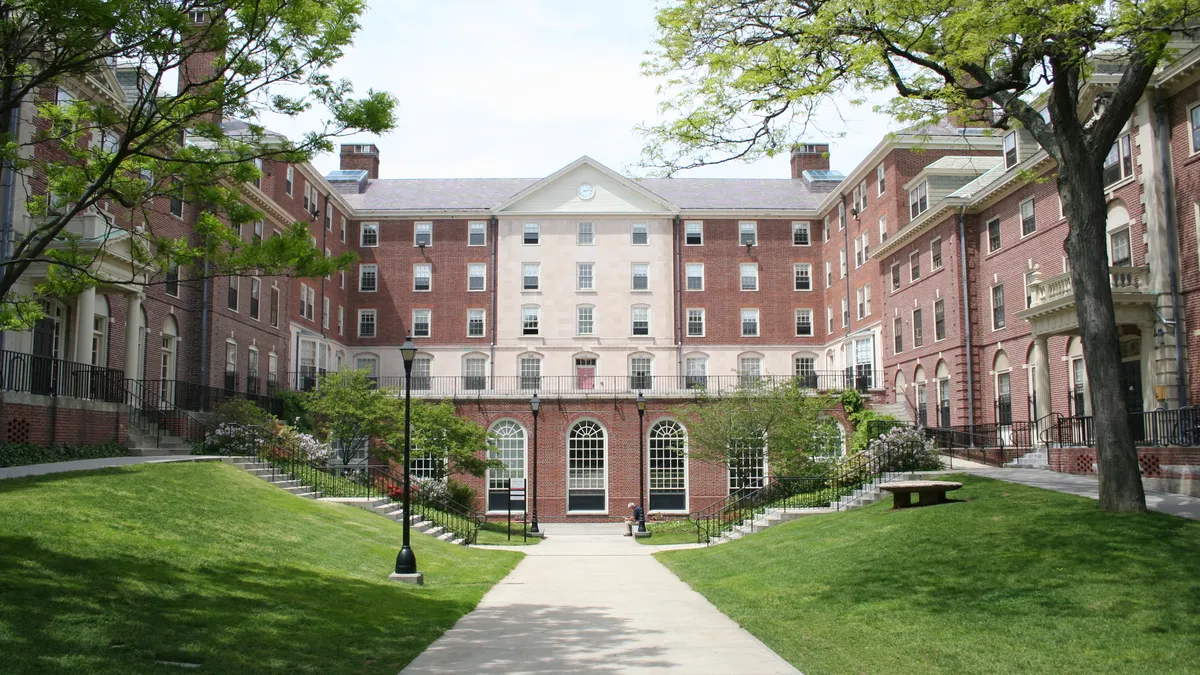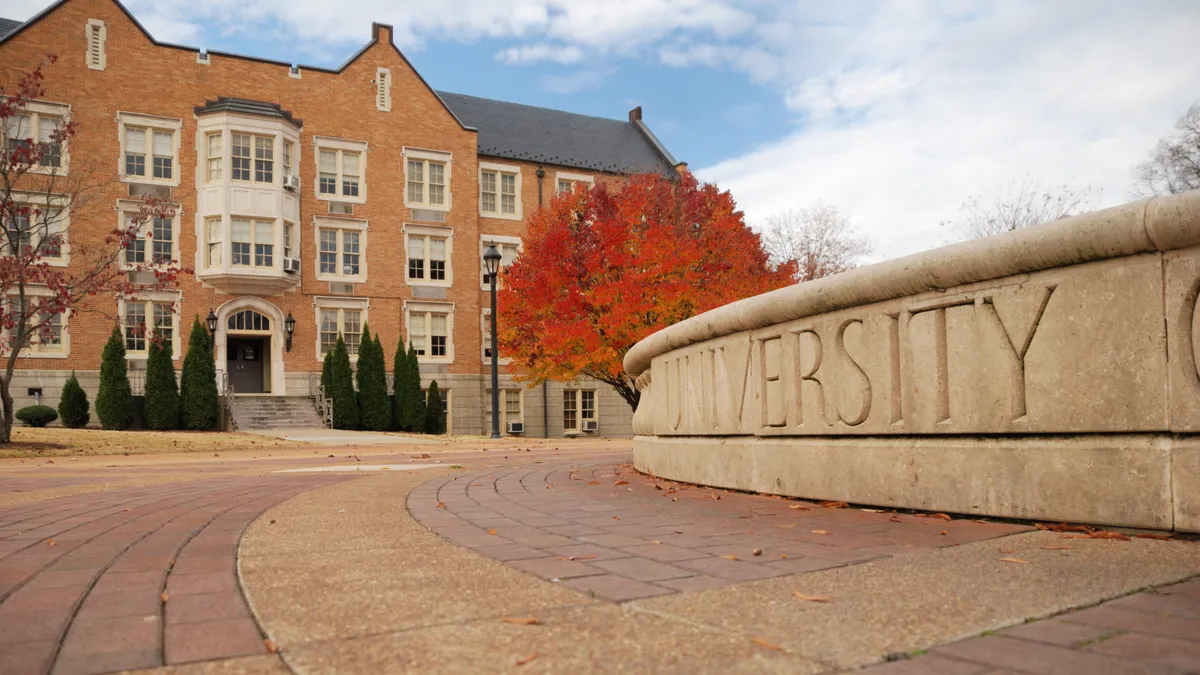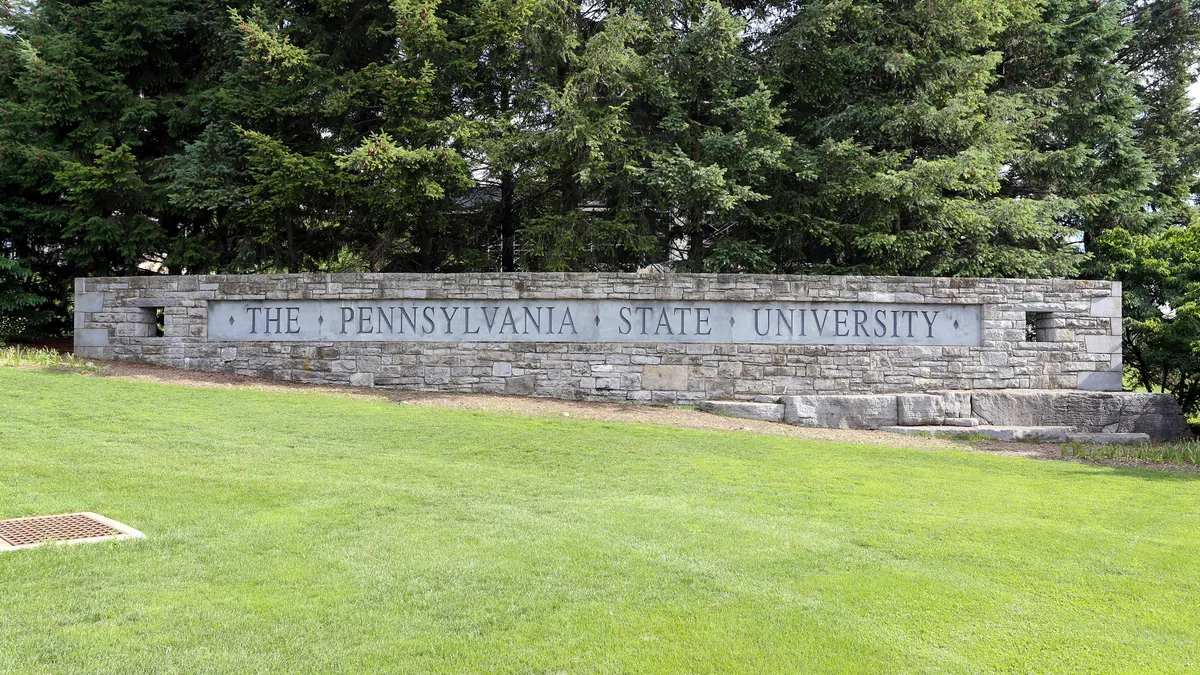As colleges prepare for the fall, some are dealing with yet another barrier to bringing students back to campus. Around one-third of U.S. states have quarantine orders or recommendations affecting certain groups of people entering their borders, according to one count.
While several states merely recommend that certain out-of-state visitors quarantine upon arrival, others are mandating they do so and have penalties for noncompliance. And such orders could affect colleges, which may need to give students time and space to quarantine or test them for the coronavirus.
New York, which was besieged by the virus early in the pandemic, is ordering people coming from 31 other states as of Thursday to quarantine for 14 days upon their arrival. People flying in from designated states must fill out a health form or risk a $2,000 fine.
In response, Ithaca College told out-of-state students impacted by the advisory to study remotely until their respective states are removed from the list. Officials said they don't have the resources to quarantine a large number of students, the Ithaca Journal reported.
Meanwhile, nearby Cornell University is preparing to welcome back its out-of-state students, though it doesn't yet know how many will be impacted by the advisory, a spokesperson for the college wrote in an email.
Cornell is asking residential students to arrive in New York by August 17, more than two weeks before classes resume. The university will provide students planning to live on campus with a quarantine location and meals, the spokesperson said, adding that the situation is "fluid" and that the school will "communicate changes broadly as we become aware of them."
Off-campus students, on the other hand, are being asked to quarantine at their residence and schedule a coronavirus test before they arrive on campus. Cornell is partnering with a local healthcare provider to administer tests this fall.
"Even though states are putting the 14-day quarantines up, there are big questions about how it'd be enforced on a campus and for students who live off campus."

Nicholas Hillman
Education professor, University of Wisconsin-Madison
Well-heeled colleges, such as Cornell, will likely have more space and resources to accommodate students impacted by travel restrictions, said Brendan Cantwell, an education professor at Michigan State University.
But it also comes down to the trade-offs a college is willing to make, he added. "If you decide to provide quarantine space for students, then what you're saying is that space is not available for something else," such as housing, he said.
Pennsylvania has a similar travel advisory, which asks out-of-state visitors from states with high levels of coronavirus cases to quarantine for two weeks upon arriving.
The University of Pittsburgh is asking residential students to quarantine for seven days before moving into campus housing, where they'll be expected to isolate for another week. Meanwhile, the public university is urging off-campus students to shelter in place for two weeks before coming onto campus.
The university did not respond to Education Dive's questions about the policy emailed Thursday. However, a spokesperson told a university publication that it does not plan to track whether students are following the quarantine orders. And higher education experts said it could be difficult for institutions to do so, especially for students living off campus.
"Even though states are putting the 14-day quarantines up, there are big questions about how it'd be enforced on a campus and for students who live off campus," said Nicholas Hillman, an education professor at the University of Wisconsin-Madison. "The impact seems really uncertain unless it's strictly a residential campus."
Can testing help?
Testing is central to the plans of several colleges that are under state advisories. Students at Brown University, in Rhode Island, will be tested for the coronavirus after arriving in Providence and will need to observe a 14-day quarantine or "quiet period," in which they are expected to minimize contact with others, a university spokesperson wrote in an email.
That will help students comply with Rhode Island's travel advisory. It requires visitors coming from states with a 5% or higher positivity rate on coronavirus tests to quarantine for two weeks unless they can show they tested negative for the virus within 72 hours prior to arriving in the state or test negative during their period of isolation.
Brown estimates that around two-thirds of its roughly 6,800 undergraduate students this fall will be on campus and that a significant number will be impacted by the state's travel advisory, a university spokesperson said.
The university is planning to put most students in single rooms and to cluster them in "pods" to reduce those who need to be quarantined if there is an outbreak. It is also preparing 180 isolation rooms for infected students based on epidemiological models. They predict up to five newly infected students could be detected on "any given day", the school's reopening plan notes.
Colby College, in Maine, is planning to administer roughly 85,000 coronavirus tests this fall to the tune of around $2.5 million, The Washington Post reported. A college spokesperson declined to provide an interview for this story.
Maine is requiring people from most states to quarantine for two weeks or sign a document asserting they've tested negative for the virus within 72 hours before arriving in Maine. Colby's testing requirement could help address the state policy, though not all colleges have the same testing capabilities.
For one, financially struggling colleges likely won't have the extra funds to spend on extensive testing throughout the term. But other factors are at play.
"It's not just that (Colby) has the money to do it," Cantwell said. "It's also the way they're set up."
Residential colleges with smaller enrollments will likely have an easier time tracking and testing students, whereas colleges with more students and a larger off-campus population face additional logistical hurdles.
"Those choices and trade-offs are made within a particular set of constraints that reflect who the students of a particular institution are, the size of that institution (and) the location of the institution," Cantwell said. "All of that is going to play out in different ways."
















